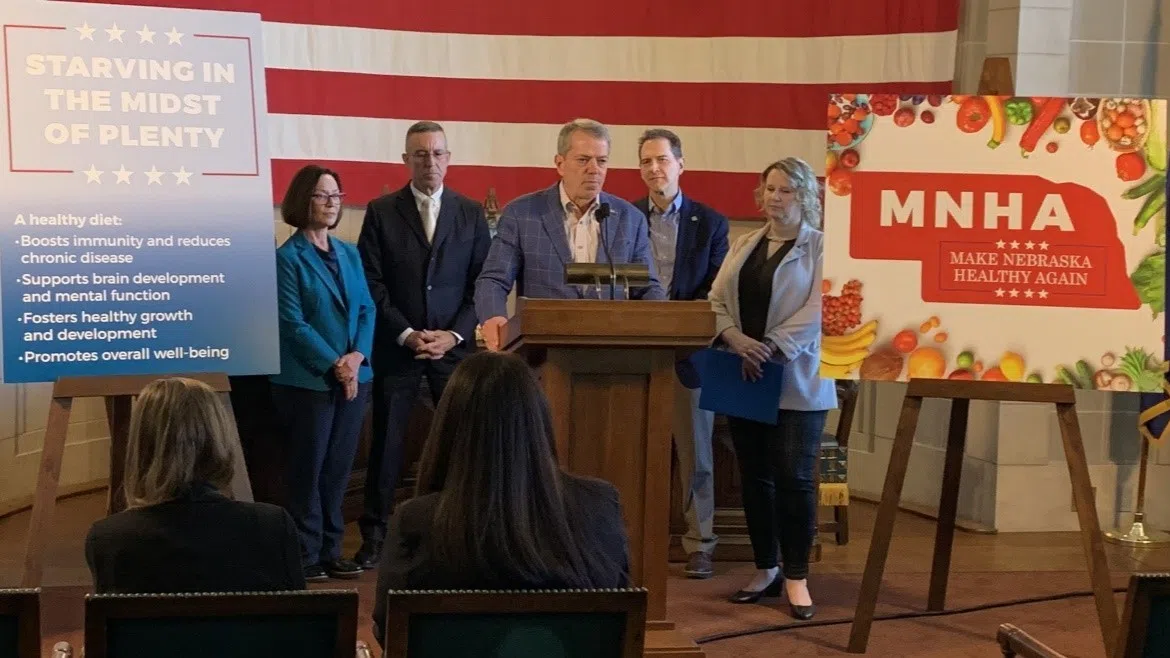Governor Jim Pillen signed a letter of intent addressed to USDA Secretary Brooke Rollins today to notify that the state would be pursuing a Supplemental Nutrition Assistance Program (SNAP) waiver, removing soda and energy drinks from SNAP allowable purchases.
“We are starving in the midst of plenty,” said Gov. Pillen. “Last time I checked, pop is not a food group.”
This is a waiver invited by US Secretary of Health and Human Services, Robert F Kennedy Jr., following the submission of similar waivers across the country. Nebraska is the second state to submit such a waiver, joining West Virginia. Approximately 75,000 households or 152,000 individuals receive SNAP benefits in Nebraska. It is estimated 67,690 are youth.
SNAP provides food benefits to low-income families to supplement their grocery budget so they can afford the nutritious food essential to health and well-being. Pillen said, according to the USDA, soft drinks or soda are the most common SNAP purchase.
“Protecting Nebraska’s children is a top priority for Governor Pillen,” said DHHS CEO Steve Corsi. “The decision to omit harmful drinks from SNAP purchases is an important step that will help children and families live healthy lives and have bright futures.”
Once approved by the USDA, DHHS will partner with grocers and other stakeholders to implement the waiver.
Nebraska Appleseed, non-profit and nonpartisan public interest law firm, criticized the Governor’s move as a “clear effort to fall in line with current federal ideology” and a trivial solution to addressing access to healthy food.
“As the cost of living continues to rise and wages stagnate, one in thirteen Nebraskans use SNAP to buy the food they need to survive and feed their families…This not only adds to the many hoops SNAP participants already jump through to receive food benefits, but also imposes burdensome administration requirements on grocers, which can be especially harmful for small businesses,” said Eric Savaiano, Program Manager for Food and Nutrition Access at Nebraska Appleseed.
“Restrictions like the ones in this DHHS waiver assume that people with low incomes can’t make the right decision when it comes to food purchases. In fact, studies have shown that SNAP participants’ diets and food purchases are no different from the general population. Putting these restrictions in place will poverty-shame already stressed low-income Nebraskans and do nothing to fight the challenges facing American health,” he continued. “Instead of demonizing SNAP participants and policing food choice, our state should have a serious discussion about the price of food, the adequacy of SNAP benefits, and real solutions to combat poverty.”







